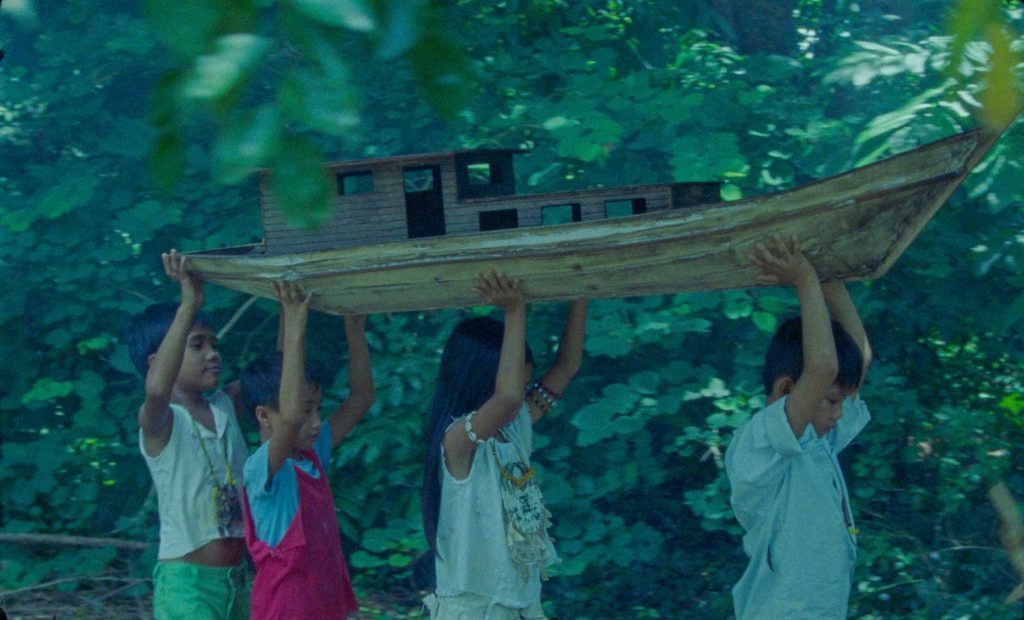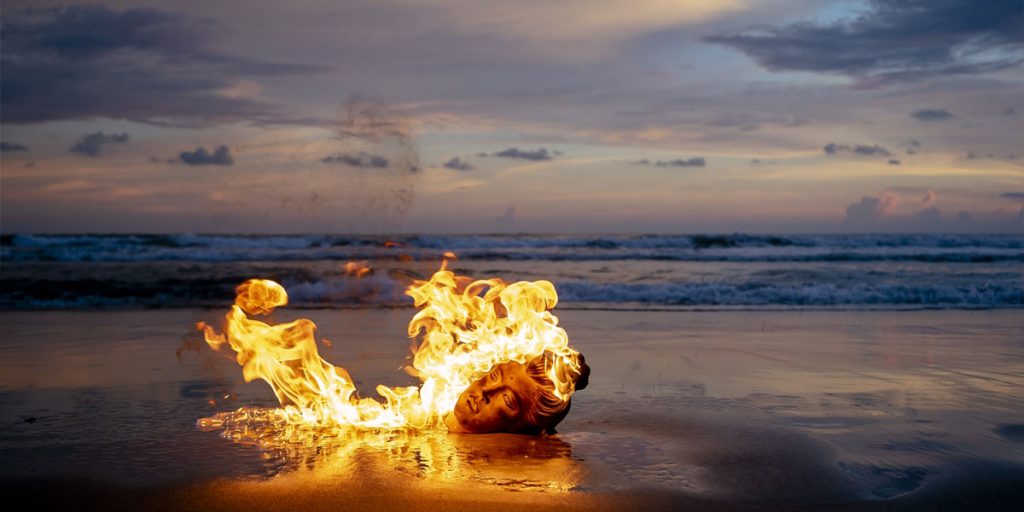In his short film The Boat People, Tuan Andrew Nguyen asks: when we all go, what becomes of our things?
It is the end of the world. Streets are deserted, towns abandoned, and five children step off a boat that has washed ashore. A girl, the oldest of the group, discovers on the beach a severed head taken from a statue of Buddha Gautama. The head begins talking to her; it explains that thieves — unable to take the whole statue — would cut off the heads, as a head alone could still fetch a fair price. The obvious question, of the intrinsic worth of a head without a body, is not considered. To them, it makes total sense.
The Boat People, Tuan Andrew Nguyen’s wonderful new short film is an interrogation of this kind of materiality. The children wander the land, forging wooden replicas of the objects they find and setting them alight. It is often a comfort to think that, when we die, our works will live on in our absence, but what if part of ourselves is tied up in them? What if it is impossible to truly find release? The act of burning, as cremation, is an ending of sorts, yet also a transformation — through it, we find passage into a new way of being.
Bataan, the province of the Philippines that makes up the film’s setting, is heavy with history. It exists within the texture of the film as a focal point for the history of colonialism in the East Indian Archipelago. Our characters roam through memorials and graveyards and museums. They bear witness to the Battle of Bataan, where in World War Two Filipino and American soldiers attempted to hold back Japanese forces. Later, they’ll find a plaque dedicated to the Vietnamese Boat People who — not 30 years on — would be driven out of their country by those same Americans.

In talking about the short, Nguyen refers at length to the Marker & Resnais film Statues Also Die, their conception that the consumption of art is a colonialist impulse in itself. I remember this year being troubled by the fuss surrounding Victory in Europe day celebrations, marking the anniversary of Germany’s surrender in World War Two. Are these instances, these memorialisations, our way of colonising the past? At what point does an object become merely a representational version of itself? When is it better to burn?
It’s not like the film comes to any conclusions, but the way it teases at these questions is so inviting. The photography is beautiful, the score by the Balinese gamelan band Gamelan Salukat is relaxing and intriguing in equal measure, and the central conversation — between the girl and the statue’s head — never puts a foot wrong. The Boat People is only 20 minutes long and is available to stream for free until the 21st, I’d urge you to check it out.

